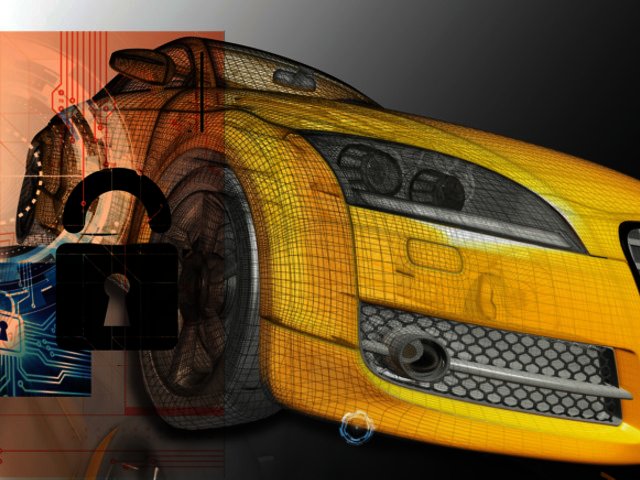Car Hacking: Your future car is next
By Staff Writer 3 October 2013 | Categories: news
In the upcoming open-world action title Watch Dogs, a vigilante is able to hack into any piece of electronic equipment within futuristic Chicago, including cars. This may seem like the premise of a good piece of fiction, but the facts are that hackers are already able to take control of your vehicle.
As technology continues to develop and permeate every sector of human activity, the humble car has not been left behind when it comes to progress. Luxury saloons have always been at the forefront of technological development and this segment introduced the concept of the in-vehicle infotainment system back in 2001 when BMW unveiled the first generation of its iDrive system.
In-vehicle infotainment systems allow the driver to control the main features of the car, including climate control, the audio system, satellite navigation, and Bluetooth-based hands-free calling. It unfortunately also offers a point of access to hackers. And since these type of systems are no longer limited to expensive executive cars and have started to make their way onto more common vehicles such as Ford’s passenger cars, there are more targets available.
Modern cars further employ a plethora of electrical and electronic components for commonly utilised car functions the likes of accelerating, braking, opening or closing the windows.
Where there’s an exploit, there’s a hacker
During May of this year, the US Department of Homeland Security issued a security advisory warning motorists that certain flaws within the wireless Bluetooth systems integrated in their cars could be exploited by hackers. According to the department, hackers might be able to assume control over some of the functions of cars. This includes causing your fuel gauge to indicate full when your car is actually very nearly empty, or, more alarmingly, disabling the brakes whilst you are cruising down the highway.
This warning was not without reason, since in July, two Statesidebased security experts, Charlie Miller and Chris Valasek, proved just how vulnerable modern cars are, when they managed to hack two of the most popular vehicles in the US. After receiving a research grant from the US government, the pair developed methods of attacking critical systems in the Toyota Prius and Ford Escape SUV.
The pair employed an analogue hacking method, whereby they connected their laptop into a port on the cars, which is the same port vehicle mechanics use to check the condition of your car when it goes in for a service. They went on to release the detailed blueprints of their techniques at the 2013 Def Con hacking convention in Las Vegas during August, making this info public record.
Autonomous cars leave door open to control by outside forces
Of greater concern is that hackers don’t need to break into your vehicle to hack it. Instead they will exploit your reliance on mobile devices by attacking the vehicle’s Bluetooth connections, CDequipped sound system or even safety tech the likes of the tire pressure monitoring system.
A case for this point was made by Australian hacker, Zoz, at the 2013 Defcon convention. Zoz asserted that the hacking of autonomous cars in particular was an unavoidable security threat of the future. Autonomous cars such as Google’s self driving car and Mercedes- Benz’s S500 Intelligent Drive make use of a wealth of sensors in order to act like a virtual chauffeur by driving themselves without requiring any input from passengers.
According to Zoz, hackers could theoretically assume control of these kinds of cars over a wireless network, overriding their sensors while getting the vehicle’s infotainment system to display false info to the passengers. This would suggest that criminals can hack into a selfdriving car to deliver the powerless victim to their doorstep.
To the point
Despite the seriousness of the threat of modern cars being vulnerable to hacking attacks, the issue is not being given much attention by car manufacturers as criminals have not begun to capitalise on these exploits. However, given that the methods of Miller, Valasek, and Zoz have been published and are accessible to hackers from all around the globe, that may very well soon change. Consider yourself duly warned.
Article first appeared in TechSmart 121, October 2013. Download it here.
Most Read Articles

Have Your Say
What new tech or developments are you most anticipating this year?



